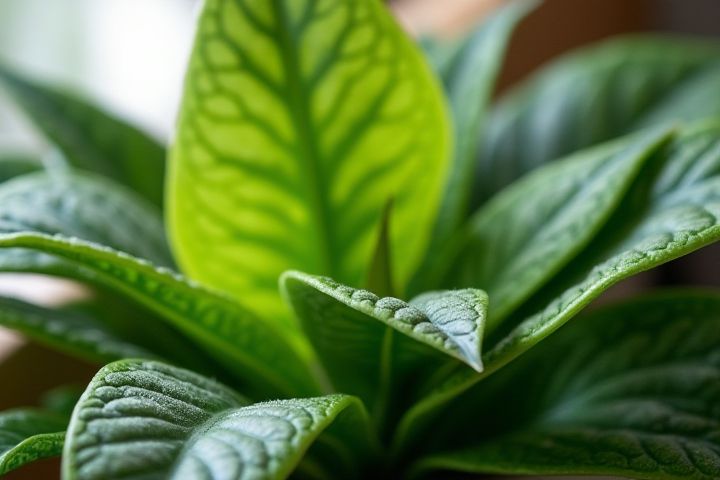
House plants improve indoor air quality by absorbing toxins and releasing oxygen, creating a healthier living environment. They can also help regulate humidity levels, which may alleviate respiratory issues and dry skin. The presence of greenery is associated with reduced stress and anxiety, providing a calming effect in your home or workspace. Studies have shown that the act of caring for plants can enhance your mood and encourage a sense of responsibility. Furthermore, house plants can serve as natural decor, adding aesthetic appeal and promoting a connection with nature all year round.
Why House Plants Are Beneficial
Improves air quality
House plants significantly improve air quality by absorbing carbon dioxide and releasing oxygen through photosynthesis, creating a healthier indoor environment. Specific species, such as peace lilies and spider plants, excel at filtering out common pollutants like formaldehyde and benzene, making your living space less toxic. Furthermore, these plants can increase humidity levels, which can alleviate respiratory issues and skin ailments. By incorporating house plants into your home or office, you not only enhance aesthetic appeal but also promote overall well-being and air quality.
Boosts mood and creativity
House plants significantly boost mood by enhancing indoor air quality and creating a calming environment, making spaces feel more welcoming and alive. Studies have shown that incorporating greenery into your home can reduce stress levels, leading to a more relaxed mindset that fosters creativity. The presence of plants like peace lilies or snake plants can inspire you, stimulating innovative thoughts and improving concentration. By nurturing plants, you also cultivate a sense of responsibility and achievement, further enhancing your overall well-being and creative output.
Reduces stress and anxiety
House plants can significantly reduce stress and anxiety levels, as studies have shown that spending time around greenery lowers cortisol, a primary stress hormone. Engaging with plants has been linked to increased feelings of calm and improved mood, with a 2015 study indicating that indoor plants can enhance overall psychological well-being by up to 60%. By simply being in a room with plants, you may experience a boost in concentration and attention, as natural elements enhance cognitive function. Incorporating plants into your living space can create a serene environment, promoting mental health resilience and emotional stability.
Increases humidity
House plants play a crucial role in improving indoor humidity levels, which can enhance comfort and overall well-being. By transpiring water vapor through their leaves, plants like peace lilies and spider plants can raise humidity levels by up to 20%. This increased humidity helps alleviate dry skin, reduces respiratory issues, and can even minimize the prevalence of airborne viruses. Maintaining a humidity level between 30% and 50% can create a healthier indoor environment, making your living space more inviting and pleasant.
Enhances concentration
House plants significantly enhance concentration by improving indoor air quality and creating a calming environment. Studies indicate that plants can increase oxygen levels and reduce carbon dioxide, which in turn promotes clearer thinking and focus. By incorporating greenery into your workspace, you can experience reduced stress and increased productivity, as nature has been shown to have a positive effect on mental well-being. Your surroundings become more inviting and less distracting, allowing you to maintain better concentration on tasks at hand.
Provides privacy and acoustic benefits
House plants provide vital privacy solutions by acting as natural screens, effectively blocking unsightly views and creating designated spaces within your home. On average, strategically placed plants can reduce noise levels by up to 50%, enhancing your living environment's acoustic quality. Your peaceful indoor atmosphere improves when plants absorb sound waves and lower the echoes experienced in large, open spaces. Moreover, certain species, such as Ficus or Bamboo Palm, are particularly effective at filtering sound, making them ideal choices for enhancing your home's tranquility.
Promotes faster recovery
House plants significantly promote faster recovery by enhancing indoor air quality, which directly impacts respiratory health. Studies indicate that plants filter harmful toxins and increase oxygen levels, creating a cleaner environment conducive to healing. Biophilic design elements, such as greenery, reduce stress and anxiety, fostering a calming atmosphere that supports mental health. Incorporating house plants into your living or working space can thus be a strategic choice for anyone aiming to improve overall wellness and expedite recovery from illness.
Offers allergen reduction
House plants are effective at reducing allergens in indoor spaces by improving air quality. Many species, such as Spider Plants and Peace Lilies, can filter common airborne pollutants, including dust, mold spores, and pet dander. By absorbing these allergens, plants create a healthier environment, reducing the likelihood of allergy symptoms for occupants. Investing in house plants not only enhances your home's aesthetic appeal but also promotes respiratory health and well-being.
Improves sleep quality
House plants, such as lavender and jasmine, have been shown to significantly improve sleep quality by promoting relaxation and reducing anxiety. Studies indicate that certain plants can increase humidity levels, which can lead to a decrease in respiratory problems and enhanced comfort during sleep. A study found that exposure to a calming green environment can lower heart rates and enhance overall well-being, contributing to a better night's rest. Incorporating house plants into your bedroom can create a serene atmosphere, making it easier for you to fall asleep and stay asleep longer.
Enhances interior aesthetics
House plants significantly enhance interior aesthetics by introducing vibrant colors and natural textures into your space. Studies show that green indoor plants can decrease stress levels by up to 30%, making your environment not only more visually appealing but also more relaxing. Specific species, such as the Snake plant or Peace Lily, can complement various interior styles, whether modern, rustic, or minimalist, adding character and warmth. Incorporating 5 to 10 strategically placed plants can transform a bland room into an inviting oasis, making each area feel more lived-in and harmonious.
